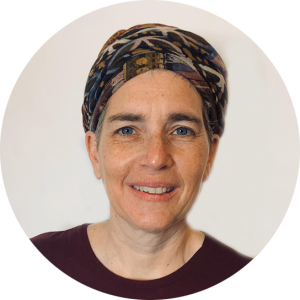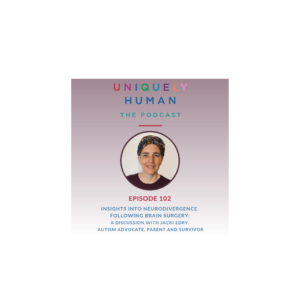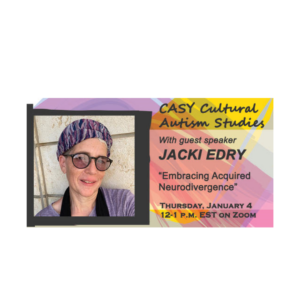In these challenging times, Judaism, Jewish identity, and the right of the State of Israel to exist have become topics of interest.
A few years ago, I published my first book “Moving Forward: Reflections on Autism, Neurodiversity, Brain Surgery, and Faith,” and in one of the chapters (p. 82), I discussed what led me to explore my Jewish identity and our connection to the land of Israel.
I thought that now would be the perfect time to share it with you. I hope you will find it insightful:
Judaism
I began to explore Judaism as a young adult, shortly after completing college. It was the summer of 1987, and I was on my first visit to Israel. I had chosen to visit the Holy Land because I had many questions about my Jewish identity. I had been raised to take pride in the fact I was Jewish, but I had no real understanding of what that truly meant. I was taught Judaism is more of a cultural identity than a religion. We celebrated the high holidays, Passover, and Chanukah, as most “cultural” Jews did. However, we did not observe the Jewish laws (halachot) relating to the holidays or the Sabbath.
The Holocaust also had some influence on me, as it was something that was part of our lives, though from a distance. We knew about the family members who had been killed in the war and had somewhat of a connection with the few remaining survivors. It wasn’t something that was discussed or explored deeply, but it definitely motivated me to begin exploring my roots. I even took a course in college to learn about it more in depth.
In addition to this, for as long as I could remember, I had an unexplained curiosity and drive to visit Israel to “see what it’s like.” Immediately upon graduation, I booked a flight and spent a summer on a kibbutz “discovery” program.
One evening, a few soldiers invited me to do some sightseeing around Jerusalem. It was a beautiful August evening, and we went to eat falafel near the gates of the Old City. The air was refreshingly crisp, and the walls of the Old City were golden and breathtaking. When I stepped out of the car and planted both feet on the ground, I was quite surprised to hear myself saying, “I’m home. Finally, I’m home.”
Needless to say, I was shocked to hear the words that had slipped out of my mouth. I didn’t quite know what to do about it…so I simply tried to ignore the whole incident and get on with things. I ordered my falafel and joked around with the guys on the way back to the kibbutz. A short time later, I found myself back in New York City with a good job in an advertising agency. Everything was perfect for a young woman, fresh out of college, with a bright future ahead of her in the Big Apple.
Everything was perfect – except for one thing. That night in Jerusalem kept replaying in my head. I kept feeling those golden walls calling me to come back home. I couldn’t focus on anything else for a long time. Everything else seemed to be so empty. Even though I had been born and raised in New York, all I wanted to do was to go back home – to Israel. It made absolutely no sense at all, but my inner restlessness grew day by day. I began to question if there was such a thing as spirituality and if it lived somewhere inside of me.
After about seven months, I purchased a one-way ticket to Tel Aviv. I planned to stay in the country until I figured out what I was looking for. Gradually, my restlessness turned into curiosity. I decided to learn about Judaism and faith.
One of the good things about being in Israel is you don’t have to work exceptionally hard to learn the basics of Jewish practice; the names of the holidays and their meanings are part of even non-religious circles. And, considering that I only knew the names of maybe half of the holidays and hadn’t a clue what I was supposed to do in a synagogue, this helped spare me quite a lot of embarrassment in the beginning.
Most of my learning was accomplished through a slow, osmotic process. It was a fascinating journey. Over time, I gradually began to live a religious lifestyle. It has brought me so much contentment, purpose, and inner joy I can no longer imagine living any other way.
Discovering My Jewish Identity
In addition to my gradual spiritual awakening, I pondered questions about the Jewish identity I was raised with. I was puzzled as to why my family had felt it important for us to hang on to our cultural affiliation if we were completely non-religious. I couldn’t figure out why we considered ourselves to be “proud Jews.” What were we proud of? Why were (and are) assimilated Jews persecuted for being Jewish, even if they don’t identify with or practice Judaism? Why did the Holocaust happen, and what did it mean for the generations that followed? All these unresolved questions caused me inner turmoil, and I began to seek answers.
Statistically, Jews make up only about 0.002 percent (two people per thousand) of the general population. Yet, for some reason, everything about us seems to be of great interest to the world. Everything that happens in Israel, our tiny country, is broadcast globally every day.
There is also an ongoing dialogue about dividing up our nation, which is no larger than the size of the state of New Jersey. In addition, we have been surrounded by enemies who have sought to annihilate us for thousands of years. Yet somehow, despite this, we have survived and flourished.
None of this made sense to me until I began to study the Torah.* I learned G-d is our Creator, and He gives life to all things. He holds the fate of the Jewish people, and of all people, in His hands.
I also discovered being a Jew is far more than simply having a cultural affiliation. Judaism is a religion, with laws and rich traditions. It is a nation. At times, we have been fortunate enough to live in our homeland. For the most part, we have been forced to survive in the diaspora, where we have suffered from ongoing and often systematic persecution.
The Torah lays out a very clear set of guidelines we are expected to live by. Today, however, not all Jews are familiar with Jewish law or choose to abide by it. There are also many different factions prevalent in Judaism today, due to different interpretations as to how to follow Jewish law.
Not everybody who is Jewish wishes to be affiliated with their Judaism. Some people don’t even believe in the existence of G-d. Others might even believe that religion, including Judaism, is the cause of all wars. This is an unfortunate misunderstanding, because love, not war, is the essence of Judaism.
One thing I have noticed regarding Judaism is if a person is born Jewish, in my experience, they will find it practically impossible to disassociate themselves from it. I’m not sure if this is the case with other religions, but if a person is Jewish, it’s likely that at some point, someone will remind them of their affiliation, even if they are completely non-religious. For some reason, people find the need to make it clear to us that we are a part of the Jewish people. It doesn’t appear to be relevant to them if we are interested in practicing or identifying with our Judaism or not. For them, in many cases, it is something that’s important to take note of. This may turn out to be either positive or negative, depending upon whether they are pro- or anti-Jewish.
HaShem (“The Name”) Oversees the World
A fundamental concept in Judaism is that G-d oversees everything. In Hebrew, this is called hashgacha.He knows our thoughts and is aware of everything we experience. Whatever happens in the world is a part of His master plan, whether it appears to be a trivial detail or is of universal proportions.
When I was learning about this concept, I was told to imagine myself observing a master painter at work. He initially takes a blank canvas and a palette full of colors, and then makes a few brush strokes. There may or may not appear to be a connection between the lines. Some colors appear to go together, and others might clash. The observer has no idea what the painter is planning. He only has the privilege of standing by and waiting to see what happens next.
The painter continues painting, layer after layer. He mixes the colors and changes the details and lighting. Slowly, over the course of time, the painting takes form. It is amazing how all the details suddenly merge together and unify into a beautiful composition. During this process, the painter makes decisions, changes course, and re-adjusts his plans.
This image of a painter can be used metaphorically as an infinitely small illustration of what G-d does on a universal level. We have no idea what He is planning for us. We can only respond to things as we experience them. What we plan for ourselves is not always on par with what He decides is right for us. The only way we can begin to understand how the puzzle fits together is through hindsight.
There is a well-known expression in Judaism that goes, “Not everything is good, but it is all for the best.” There are times when things happen that appear to be completely unpalatable or unclear. Despite this, I have come to understand I must try to acquiesce to His will with dignity. Even if I don’t always understand why, I must endure the particular challenges G-d has set out for me. I’m not always successful at this. But I do my best to keep trying.
Prayer and determination can be extremely helpful in the face of tribulations. I have seen and felt their power over the years. They have led me to understand that inner peace and joy can be achieved despite external or physical challenges.
It took me many years and life experiences to understand that I should embrace and celebrate my Judaism. I consider myself extremely blessed and fortunate to have come to this realization. It has enabled me to connect to my Creator, my people, and the Land of Israel. I now, thank G-d, lead a more fulfilling and peaceful life than I did years ago. Faith is what fuels me to drive on in the face of strife, and fills me with love, opportunity, and hope.
May we all be blessed with the things that are best for us, and for the world.
* The five books of Moses: Bereshit (Genesis), Shemot (Exodus), Vayikra (Leviticus), Bamidbar (Numbers), and Devarim (Deuteronomy).




